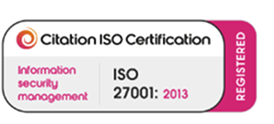Why should you create SEO friendly job categories on your recruitment website
Building a recruitment website is only the first step on building a successful online arm of your recruitment business. The next step is to ensure that people can find you in the search engines.
Our system is designed with SEO in mind and there are elements where the system will help with the optimisation but to really make the most of it you need to make sure that your job categories are set up correctly.
Why focus the SEO on the job category pages?
There are a number of different types of pages on a recruitment site, the homepage, the job listings or category pages, the job adverts, and “CMS” pages or pages when you can add any content you want to them.
So when faced with these options why focus on the job category pages and not the job adverts? There are three main reasons:
1. This is what people are looking for – When they search the internet for jobs they want to see jobs!
2. Category pages stay live and will slowly build authority – Job adverts come and go so it’s hard to make sure they build authority
3. The fewer clicks a user needs to do the more likely they are to use your site
These three reasons focus on candidates but our research shows that when clients are looking online for a new recruitment company to work with they will conduct the same types of searches as candidates and as a result if you focus on attracting candidates clients will follow!
Use keywords in the categories
Keywords play a massive part in SEO and unless a page is optimised for a particular keyword it will not rank for that keyword, therefore it is vital that you use keywords when selecting your category names.
How to select keywords will be a subject for another blog post but for now the best piece of advice I can give is use the words that your candidates and clients use, not terms that your company use internally. In addition it is best to avoid trying to merge too many separate job fields in to one category as this will make it hard to focus on one keyword.
So once you have decided what the keyword is going to be, for example “English Teacher Jobs”, you can then name your job category “English Teacher Jobs”. At this point the system will take over and will automatically add the keyword to the most important parts of each page:
- The URL
- The meta title
- The h1
- The anchor text
Once all these areas are optimised you are well on your way to having an SEO friendly job category.
Add unique content
So you’ve chosen keywords that people use in search engines, have named your categories after these terms, and the system has placed those keywords in the most important parts of the page what’s next? If you really want to add value to the site and ensure that it stands out from the competition you need to add unique content to each category page.
The system allows space at the top and the bottom of each category page for you to add this; you just need to be signed in to use it.
Depending on the number of categories you have this can be a long process but it is well worth it if you follow these rules:
Make the content unique
Don’t use copy and paste, only changing the keywords. Both search engines and your users will see right through that. Instead make the content genuinely useful and interesting.
One sentence is not enough
You need to add between 300 – 500 words for the content to have any impact.
Include a call to action
This will help improve user engagement on the site and increase the registrations and applications.
By focusing on your job categories, using keywords in the category names, and adding unique content your site will be in a much better position to take advantage of the search engines. However your SEO efforts have only just started the next step is to promote your site using good content, social media, and links from other sites but they will have to wait for another blog post!
For more information please contact a member of the team.












